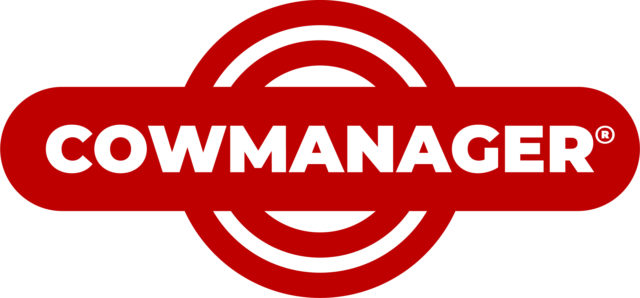I am often asked by dairy farmers why the checkoff is involved with sustainability.
To share where the checkoff is today with our mission, I want to take a step back to our history. If we look at the original purpose for the dairy checkoff, we were established by farmers to drive sales and trust in dairy through research and promotion. Historically, that research focused on dairy nutrition in partnership and collaboration with others.
However, as consumer trends evolved, it became clear that dairy needed to engage in environmental sustainability to best support farmers. Checkoff leadership was hearing from cooperatives that processing and retail customers were requesting sustainability scorecards, which all varied in nature.
These requirements were not just happening domestically; they were occurring in our valued international marketplace where exports of U.S. dairy have held a stronghold over the years.
Dairy is far from alone in meeting these environmental expectations. Nearly every industry beyond the farmgate has taken steps to engage in sustainability through goals, standards and supplier requirements.
This exemplified the need for the U.S. dairy industry to be unified, speak with one voice and strengthen our environmental stewardship commitment. In 2018, the USDA renewed a memorandum of understanding it signed in 2009 with the checkoff-founded Innovation Center for U.S. Dairy to jointly promote and enhance environmental sustainability.
Additionally, the dairy community established the industry's 2050 environmental stewardship goals to support a vision where dairy is an environmental solution. The goals addressed areas where U.S. dairy collectively can have the greatest impact, including:
- Achieve greenhouse gas (GHG) neutrality
- Optimize water use while maximizing recycling
- Improve water quality by optimizing the utilization of manure and nutrients
The checkoff tracks consumer perceptions, and we know these goals align with their interests and food choices. People prioritize environmental stewardship in their purchase decisions and support industries and companies that are working to improve their performance. Some of the most recognizable manufacturers and quick-serve restaurant chains understand this very well and empower heads of sustainability and teams to apply sustainable practices across their businesses.
These are companies that use a lot of dairy in their products and on their menus.
Dairy is playing from a position of leadership, thanks to generations of farmers who built an environmental foundation. This legacy gives us the ability to set the record straight when challenged by false or misleading narratives often led by groups that oppose animal agriculture.
When I speak with farmers, I remind them they are not carrying the full weight of this endeavor. While it is not the checkoff’s place to mandate any practice or adoption of technology, we have the resources to highlight and promote the important work farmers are already doing for the environment and provide them with tools to continuously improve.
One example of this support is Newtrient, which the checkoff created in 2015 with the goal of reducing dairy’s environmental footprint and making it economically viable to do so. Newtrient, which also is funded by nine leading cooperatives, has a team of experts who work with farmers and dairy supply chain companies to accelerate environmental practices, technologies and markets to help farms of all sizes, styles and geography voluntarily adopt climate-smart practices. Newtrient can help farmers access carbon markets, government incentives and other funding mechanisms to help reduce risks and costs.
Leading with science
Dairy Management Inc. (DMI) also has a highly credentialed staff of environmental scientists and experts who are committed to supporting farmers with research-based resources to ensure their practices remain viable well into the future. We are at the forefront of developing innovative practices, such as the Dairy Soil and Water Regeneration (DSWR) project.
DSWR is led by DMI in collaboration with the Soil Health Institute and researchers at eight institutions. In 2021, the Foundation for Food & Agriculture Research awarded a $10 million grant in support of DSWR, and companies including Newtrient, Nestlé and Starbucks are more than matching the funds.
DSWR examines how advancements in farming practices affect soil health and environmental footprints across major U.S. dairy regions. By studying real-world applications of soil and manure management techniques, we aim to identify ways that enhance sustainability while maintaining productivity.
Another exciting initiative is the Greener Cattle Initiative, a collaborative effort that addresses enteric methane emissions. This work brings together global partners to fund and develop effective mitigation strategies for methane emissions from dairy and beef cattle. We already have launched significant projects and continue to seek innovative solutions that bring economic feasibility.
As the research across these and other initiatives comes to fruition, the checkoff can put the data and facts in the hands of farmers to enable them to make decisions on what works best for their farm.
I began this column by addressing a question, and I hope it is not the last one I get from farmers. Being transparent is key to building farmers’ trust in the checkoff and is a critical part of any work we do across the board.
As we look to the future of our sustainability-led efforts, our goal remains clear: We want to continue driving sustainable innovation that delivers tangible outcomes for farmers nationwide.
By empowering farmers with the tools and knowledge they need to thrive, we will strengthen dairy’s resilience while staying true to our checkoff mission.
This article was written by Lori Captain, group executive vice president of global sustainability strategy, science and industry affairs for Dairy Management Inc. To learn more about your national dairy checkoff, visit our website, or to reach us directly, send an email.
Key sustainability initiatives
The dairy checkoff is engaged with various research-focused efforts to build upon dairy’s environmental legacy. Two examples are:
- The Dairy Soil and Water Regeneration project examines how advancements in farming practices affect soil health and environmental footprints across major U.S. dairy regions.
- The Greener Cattle Initiative addresses effective mitigation strategies for methane emissions from dairy and beef cattle.









